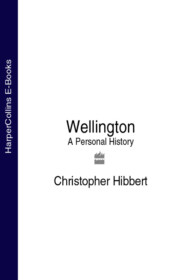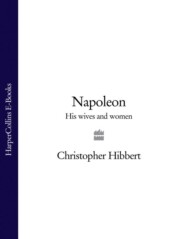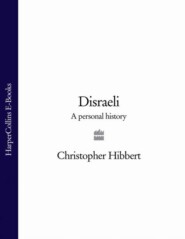По всем вопросам обращайтесь на: info@litportal.ru
(©) 2003-2024.
✖
Queen Victoria: A Personal History
Настройки чтения
Размер шрифта
Высота строк
Поля
14 PRINCE ALBERT (#ulink_18c18fbd-acbf-5c13-855a-30247cfc79f8)
‘I believe that Heaven has sent me an angel whose brightness shall illumine my life.’
ON THE MORNING of 10 October 1839 Queen Victoria awoke in her bedroom at Windsor with a headache and feeling rather sick: the pork she had had for dinner the night before had disagreed with her. It was not a propitious beginning to her cousins’ visit; nor was the news that some lunatic had smashed a few of the Castle’s windows. She went out to get some fresh air, and was walking along a path when a page ran towards her with a letter. It was from King Leopold who told her that her cousins would arrive that evening.
Accordingly, at half past seven, she was standing at the top of the stairs to greet them. She watched them as they climbed up towards her, pale after a tempestuous Channel crossing in a heaving paddle-steamer, and she was immediately overcome by a coup de foudre – Prince Albert was ‘beautiful’. His blue eyes were ‘beautiful’; his figure, too, was ‘beautiful’, no longer rather too fat as she had thought when they first met but broad in the shoulders with a ‘fine waist’. All in all, he was so ‘excessively handsome’, his moustache was so ‘delicate’, his mouth so ‘pretty’, his nose ‘exquisite’. He really was ‘very fascinating’. He set her heart ‘quite going’. Everything about him seemed perfect. He was just the right height, attractively tall as she liked men to be but not so tall as to emphasize her own diminutive size.
(#litres_trial_promo)
On further acquaintance he proved to be so ‘aimiable’ and ‘unaffected’, so clever, so graceful in his movements, so elegantly dressed. His voice was charming, his manner delightful, his red leather topboots so unusually smart, his beautiful greyhound, Eos, so splendidly groomed, obedient and picturesque.
Unfortunately his trunks had not yet arrived and so he and Prince Ernest felt unable to appear at dinner, which Lord Melbourne thought they ought to have done. They did appear after dinner, however, and the Queen was further entranced by Prince Albert who danced ‘so beautifully’, holding himself so well with that ‘beautiful figure of his’. Two days later she learned, as she listened to him playing Haydn symphonies with Ernest in a nearby room, that he played the piano as well as he danced. He did not enjoy dancing as much as she did, however. He seemed happier on Sunday evening as he looked through an album of drawings by Domenichino while the Queen sat by his side.
She recited his praises to Lord Melbourne who listened patiently and kindly, endeavouring to suppress the sadness and anxiety he felt at the prospect of the changes in his life which now seemed inevitable. Yes, Prince Albert was ‘certainly a very fine young man, very good looking’; and handsome looks, as he well knew, were important to her. She had readily admitted when he had teased her about her admiration for Prince Alexander Mensdorff-Pouilly that she was ‘not insensible to beauty’. She had made a good choice in Prince Albert, Lord Melbourne assured her. His ‘strong Protestant feelings’ would be an additional asset, provided he was not bigoted. Oh, no, the Queen replied, he was certainly not bigoted. Well then, Melbourne assured her in so ‘fatherly’ a way, with tears yet again in his eyes, ‘I think it is a very good thing and you’ll be much more comfortable; for a woman cannot stand alone for long, in whatever situation she is.’
(#litres_trial_promo) He suggested only that she should take a week before she definitely made up her mind. But she did not need a week; she could not wait so long:
‘I said to Lord Melbourne, that I had made up my mind (about marrying dearest Albert) – “You have” he said; “well then, about the time?” Not for a year, I thought; which he said was too long…Then I asked if I hadn’t better tell Albert of my decision soon, in which Lord Melbourne agreed. How? I asked, for that in general such things were done the other way – which made Lord Melbourne laugh.’
(#litres_trial_promo)
On the afternoon of 15 October, five days after Prince Albert’s arrival, having accepted the fact, as she told her Aunt Gloucester, that Albert ‘would never have presumed to take such a liberty to propose to the Queen of England’, she sent him a note asking him to come to her in the Blue Closet. He arrived nervous and trembling. She too was trembling, although the squeeze he had given her hand when they had parted the night before gave her hope that all would be well. At first they talked self-consciously in German of other things, though both knew what was to be said. At length, she said in a rush that it would make her ‘too happy’ if he would consent to what she wished. The quickly spoken words ended their nervousness. Before she had finished uttering them he took her hands in his, covering them with kisses and murmuring in German that he would be very happy to spend his life with her. ‘He was so kind, so affectionate,’ the Queen wrote when she was alone again. ‘Oh! to feel I was, and am, loved by such an Angel…He is perfection; perfection in every way – in beauty – in everything…Oh! How I adore and love him…We embraced each other over and over again.’
(#litres_trial_promo)
That evening, after Prince Albert had appeared at dinner in the Windsor uniform of blue and red designed for the Royal household by George III, the Queen was handed a letter before she went to bed addressed to ‘Dearest greatly beloved Victoria’. ‘How is it,’ she read, ‘that I have deserved so much love, so much affection?…I believe that Heaven has sent me an angel whose brightness shall illumine my life…In body and soul ever your slave, your loyal ALBERT.’ After reading it the Queen burst into tears.
(#litres_trial_promo)
It was clear to all at Court that she was blissfully happy. Her passion was plain to see: her eyes followed Prince Albert round the room as they had once followed Lord Melbourne. Victoria and Albert sang duets together; they walked and rode together; they gave each other rings and locks of hair; he sat beside her while she signed papers, blotting the ink; he accompanied her when she reviewed a parade of soldiers in Hyde Park, wearing, she noted with admiration, a pair of white cashmere breeches with ‘nothing under them’.
(#litres_trial_promo) They gazed at each other longingly, obviously dying for the moment when they could be alone together, to hold each other and to kiss; and, when they were alone, tears of happiness and pleasure poured down her cheeks as he took her face in his hands, whispering endearments, kissing her mouth ‘repeatedly’.
‘I love him more than I can say,’ she wrote to King Leopold that same day. ‘These last few days have passed like a dream to me, and I am so much bewildered by it all that I hardly know how to write. But I do feel very, very happy.’
(#litres_trial_promo) When they had to say goodbye on his return to Coburg she ‘cried much, wretched, yet happy to think we should meet again so soon! Oh! how I love him, how intensely how devotedly, how ardently!’
(#litres_trial_promo)
Prince Albert’s affection for her was already deep and unfeigned. ‘I need not tell you that since we left all my thoughts have been with you and your image fills my whole soul,’ he wrote to her from Calais. ‘Those days flew by so quickly, but our separation will fly equally so.’
(#litres_trial_promo)
‘Dearly beloved Victoria, I long to talk to you,’ he told her a fortnight later, ‘otherwise the separation is too painful. Your dear picture stands on my table and I can hardly take my eyes off it.’
(#litres_trial_promo) ‘Victoria is so good and kind to me,’ he told Baron Stockmar, ‘that I am often at a loss to believe that such affection should be shown to me. I know the great interest you take in my happiness, and therefore pour out my heart to you.’ ‘Love of you fills my heart,’ he wrote to the Queen herself. ‘Where love is there is happiness…Even in my dreams I never imagined I should find so much love on earth.’ He wished to walk through the whole of life, ‘with its joys and its storms’ with Victoria at his side.
Prince Albert’s letters to his friend, Prince von Löwenstein, and to his tutor and family in Germany, however, reveal that he did not view the future, and its expected ‘storms’, without concern. He spoke of the ‘firm resolution’ and ‘courage’ he would need in the position he would have to occupy, of the tribulations that marriage to the Queen of England would be bound to bring, of his ‘dread of being unequal’ to his position. He ended a letter to his grandmother: ‘May God be my helper.’ His future lot was ‘high and brilliant but also plentifully strewn with thorns’.
(#litres_trial_promo) To his stepmother he wrote that Victoria was ‘good and amiable’; and he was sure that heaven had not given him into evil hands; but the skies above him would ‘not always be blue and unclouded’. Life, wherever one was, had its storms. It was consoling to contemplate the future opportunity for ‘promoting the good of so many’. He would be untiring in his efforts on behalf of the country to which he was to belong; but he would never cease to be ‘a true German, a true Coburg and Gotha man’. Soon after his return to Coburg, he had a foretaste of the difficulties that lay ahead.
15 THE BRIDEGROOM (#ulink_deb82b96-5458-5390-a1a4-4487fabce066)
‘You Tories shall be punished. Revenge! Revenge!’
ON 23 NOVEMBER 1839 the Queen made her Declaration of Marriage at Buckingham Palace before an assembly of Privy Councillors. She appeared before them in a simple dress and wearing a miniature of Prince Albert in a bracelet on her wrist. It was ‘rather an awful moment’, she confessed; and her hands were so fluttering that she nearly dropped the paper on which the Declaration was written.
(#litres_trial_promo) But, as at her first Council meeting, her voice was clear and true. J. W. Croker, the politician and essayist, thought her ‘as interesting and handsome as any young lady’ he had ever seen.
(#litres_trial_promo)
News of the engagement had already reached Coburg and Gotha where it had been received with great pleasure. In Coburg the sounds of gunfire and pistol shots in the streets could be heard throughout the night; and in Gotha cannon thundered as the Prince, standing in the throne room before the ladies and gentlemen of the Court, was invested with the Order of the Garter by his father, the Duke, and Queen Victoria’s half-brother, Prince Charles of Leiningen, both Knights of the Garter themselves. At the subsequent banquet the band of the Coldstream Guards, which had sailed from England for the occasion, played ‘God Save the Queen’.
(#litres_trial_promo)
In England, where the Prince landed at Dover on 7 February after a stormy, five-hour crossing, crowds gathered to cheer him on his way through Kent in the pouring rain, escorted by the Earl of Cardigan’s 11th Light Dragoons, henceforth known as the 11th Prince Albert’s Own Hussars
(#litres_trial_promo). At Canterbury, where he and his brother stayed the night and attended a service in the Cathedral, the city was illuminated in his honour.
(#litres_trial_promo)
The enthusiasm of the populace was not, however, universally shared at Queen Victoria’s Court or in Tory aristocratic circles, though it was generally conceded that, ‘if her political partisanship were to be limited, she undoubtedly needed a husband’s guidance and support’. Yet this husband was only twenty, the same age as herself; and, so The Times observed, ‘one might without being unreasonable, express a wish that the Consort selected for a Princess so educated and hitherto so unfairly guided as Queen Victoria – should have been a person of riper years, and likely to form more sound and circumspect opinions.’
(#litres_trial_promo)
The Queen’s uncles were scornful of the match; so were many of the prosperous middle classes. Newspapers reported it with lukewarm approbation or with unconcealed disapproval. Versifiers proposed that Prince Albert had come to England to marry the Queen for money:
He comes the bridegroom of Victoria’s choice
The nominee of Lehzen’s Voice;
He comes to take ‘for better or for worse’
England’s fat Queen and England’s fatter purse.
(#litres_trial_promo)
The question of money had, in fact, already arisen as one of the first problems to blight the Queen’s happiness. Lord Melbourne had assured her that there would be no difficulty in getting Parliament to agree that the Prince should receive the same provision of £50,000 a year which Prince Leopold had received upon his marriage to Princess Charlotte, and which Prince George of Denmark had had when he married the future Queen Anne in 1683. But there was difficulty. The Radical, Joseph Hume, protested that, having regard to the financial state of the country and the distress of the poor, £21,000 would be quite sufficient. The House of Commons did not think so; but when a Tory Member proposed that £30,000 a year would be a fair compromise this amendment was accepted by a large majority.
(#litres_trial_promo)
The Queen was furious: she said she hated the Tories more than ever. She had long decided that, like insects and turtle soup, they were among the things she most disliked in all the world. The Prince, who greatly regretted that he would not now be able to do so much as he had hoped for poor scholars and artists, was also much put out. ‘I am surprised that you have said no word of sympathy to me about the vote of the 28th,’ he wrote to the Queen in a letter far sharper than any he had yet sent her, ‘for those nice Tories have cut off half my income…and it makes my position not a very pleasant one. It is hardly conceivable that anyone could behave as meanly and disgracefully as they have to you and me. It cannot do them much good for it is hardly possible to maintain any respect for them any longer. Everyone, even here [Coburg], is indignant about it.’
(#litres_trial_promo)
The Queen became even angrier with the Tories, and with their standard bearer the Duke of Wellington, when it was suggested that Prince Albert, like many of his Coburg relations, had ‘papistical leanings’. In Victoria’s Declaration of Marriage to the Privy Council, the Prince had not been specifically described as a Protestant prince and therefore able to receive Holy Communion in the form prescribed by the Church of England, since Lord Melbourne had thought it best not to mention religion at all. He did not want to upset the Irish Catholics, who supported him in the House of Commons, and he could not employ the usual formula about ‘marrying into a Protestant family’ because a large number of Coburgs were either Roman Catholics themselves, or, like King Leopold, had married into Catholic families.
The Duke of Wellington – who, while not really caring a fig about it, according to his private secretary, had expressed the opinion that the annual income of £30,000 was quite sufficient for Prince Albert – now rose in the House of Lords to declare that the people ought to know something about the Queen’s future husband other than his name, that they should be given the satisfaction of knowing that he ‘was a Protestant – thus showing all the public that this is still a Protestant State’.









